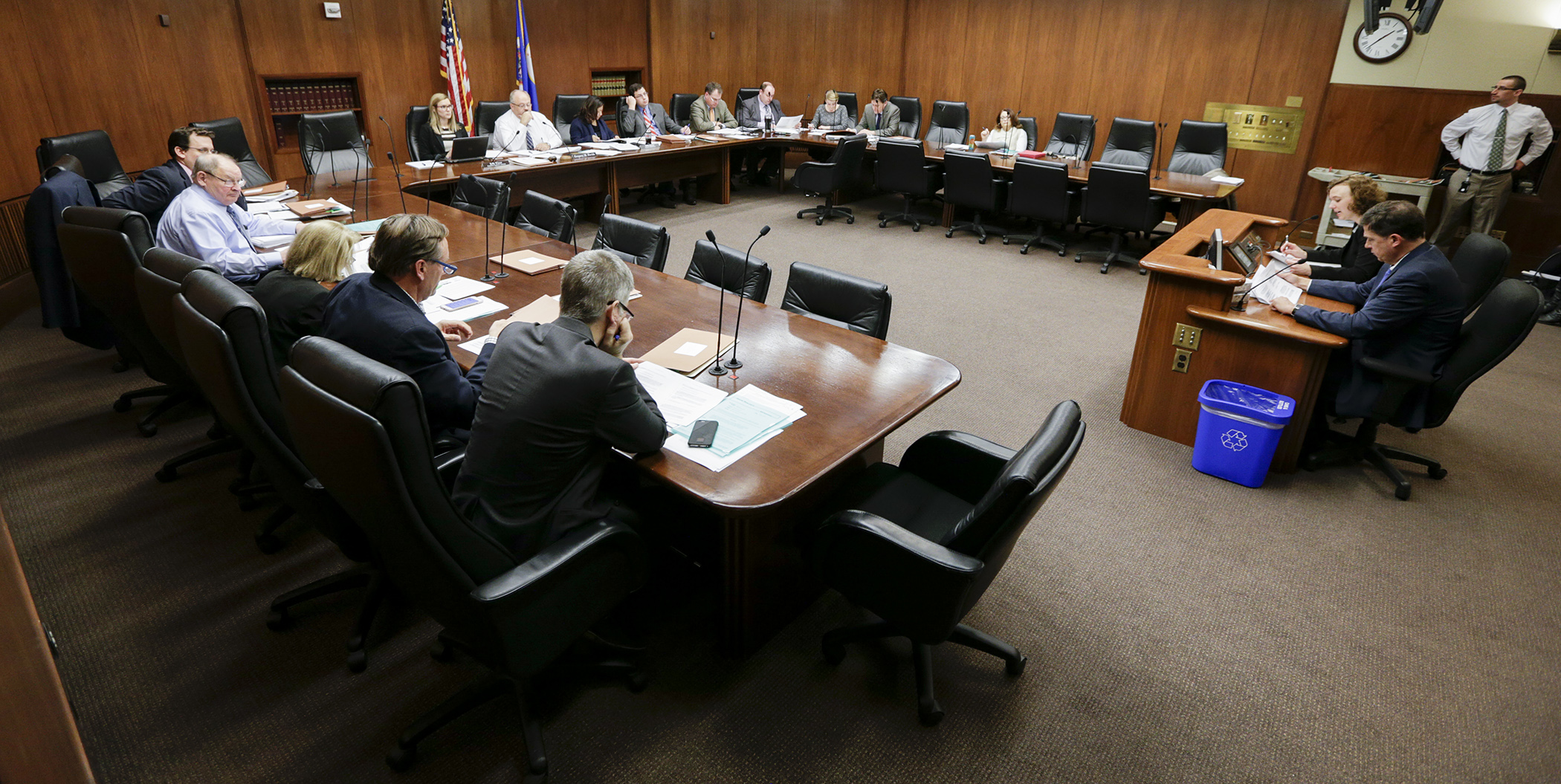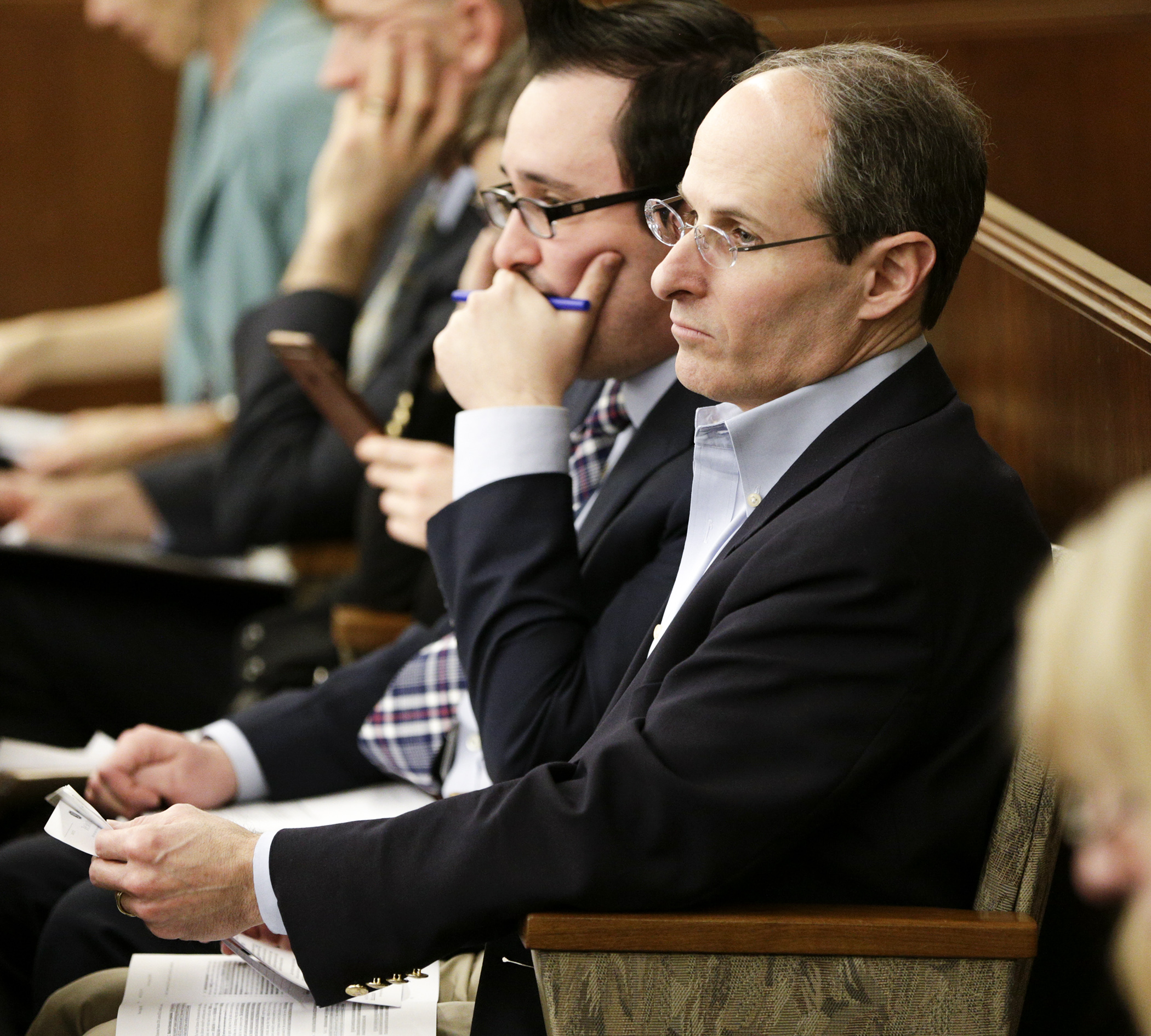Public weighs in on reinsurance, but no finalized plan this week

With separate proposals from each legislative chamber pining for approval, lawmakers on Friday began their work to reconcile differences in a state-based reinsurance program they believe will help reduce the cost of insurance premiums across the individual market.
Sponsored by Rep. Greg Davids (R-Preston) and Sen. Gary Dahms (R-Redwood Falls), HF5*/SF720 would establish a $300 million-per-year program to subsidize insurance companies carrying high-cost customers. Supporters contend the program would give carriers financial cushion so they don’t have to increase premiums on other customers.
On Friday, the 10-member conference committee tasked with comparing and approving differences between the House and Senate versions met without gaining any ground. The committee heard from the public, broke for a recess, then came back just to adjourn for the weekend.
Davids said he hopes to have a solidified bill early next week. The Legislature has a self-imposed deadline of getting the bill finalized before April when insurance companies start to fix premiums for the upcoming term.
 Commerce Commissioner Mike Rothman attends the first meeting of the conference committee on HF5 March 24. Photo by Paul Battaglia
Commerce Commissioner Mike Rothman attends the first meeting of the conference committee on HF5 March 24. Photo by Paul BattagliaWhile Republicans, who control both chambers at the Capitol, say a combination of General Fund, Health Care Access Fund and federal money should fuel the program at the onset, DFLers, including Gov. Mark Dayton, want to increase taxes on the insurance companies to cover the costs.
Opponents say the plan is faulty because private insurance companies haven’t guaranteed lower premiums in exchange for subsidies. Arguing that, without those guarantees, the health carriers could take the money and run.
“The crisis of skyrocketing premiums in the individual market has one group to blame and that’s the insurance companies themselves,” said Rose Roach, executive director of the Minnesota Nurses Association. “To cut costs and maintain profits, insurance companies jack up premiums and deductibles and kick providers out of their networks. Those solutions increase barriers to care — they do not decrease them — and for nurses, that is simply unacceptable.”
Jim Schowalter, president of the Minnesota Council of Health Plans, battled back against that assertion.
“I know some of you believe insurers have financial resources to simply solve the crisis… But using one-time funds for long-term commitments threatens the ability to continue paying those medical bills for all 4.8 million people that they serve,” he said.
The reinsurance debate comes at a time when an estimated 2.2 percent of customers in Minnesota’s individual insurance marketplace make up 40 percent of its medical bills. In turn, insurance companies try to recoup these costs to their business by increasing premiums throughout the marketplace.
Reinsurance is the second attempt this year to reduce those premiums. The Legislature in January passed a $327 million bailout for customers who are experiencing rising premiums in the individual marketplace.
Related Articles
Search Session Daily
Advanced Search OptionsPriority Dailies
Speaker Emerita Melissa Hortman, husband killed in attack
By HPIS Staff House Speaker Emerita Melissa Hortman (DFL-Brooklyn Park) and her husband, Mark, were fatally shot in their home early Saturday morning.
Gov. Tim Walz announced the news dur...
House Speaker Emerita Melissa Hortman (DFL-Brooklyn Park) and her husband, Mark, were fatally shot in their home early Saturday morning.
Gov. Tim Walz announced the news dur...
Lawmakers deliver budget bills to governor's desk in one-day special session
By Mike Cook About that talk of needing all 21 hours left in a legislative day to complete a special session?
House members were more than up to the challenge Monday. Beginning at 10 a.m...
About that talk of needing all 21 hours left in a legislative day to complete a special session?
House members were more than up to the challenge Monday. Beginning at 10 a.m...